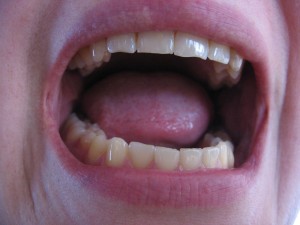Apparently, nothing brings autism families together like an article that gives really bad advice.

Today I’ve seen almost ALL of my social media friends -many of whom are on opposing sides of the many issues relating to autism- rally together because of a particular piece entitled 10 Things To Do After An Autism Diagnosis written by Hannah Brown for Huffingtonpost.com.
Hi. My name is Jo, and I’ll be your resident Hippie for the day.
I’m going to go ahead and give Hannah the benefit of the doubt. I think she wrote the article with good intentions and somewhere along the way what may have started out as an attempt at humor ended up as an open invitation for parents to pill pop their way through the horror that is their life now that their child has an ASD:
“Ask your doctor for some Valium. Not for your kid. For you. Odds are you will need it to sleep. Or to stay calm while you’re awake. Of course you may not need it, but it will probably help just to know you have it.
It was difficult to gauge whether Brown was being lighthearted in her advice to parents to obtain prescription meds stat, considering her next attempt at guidance focused on preparing for the inevitable divorce that would plague the family:
If you are the parent taking on the task of managing the child’s care (in the vast majority of cases, the mother), make sure you get paid. That’s right: No matter how tight money is, you and your spouse should pay you a caregiver’s salary, even if it’s minimum wage. Pay it on the books, so you get Social Security and unemployment insurance. Believe me, it will come in handy if you are in the approximately 80 percent of parents of autistic children who get divorced. And, if you are one of the 20 percent, you’ll have some money put away for a rainy day
I’ll sum it up to say that the entire piece ended up becoming more of an example of What Not To Do and left a bitter taste in many readers’ mouths, and rightfully so.
Now that being said, I’ve been on the receiving end of some nasty comments from readers before who vehemently disagreed with something I had written, and no one was more surprised than I was: “What? Why are so many people angry? Why are they calling me a bigot? I love my child. I’m not evil! I was just trying to be honest!”
As I read the awful things people were saying about me on the internet, I began to shut down emotionally and felt misunderstood and ANGRY. Rude comments brought out the worst in me and when I wasn’t responding with equally hurtful words, I was feeling pretty darn sorry for myself.
Then I began to read the comments from people that disagreed with me but did it in a way that was respectful; their words aimed to educate and inspire, not tear me down. It was through those kind and patient people that I found my footing again and was able to see why it was that I had hurt and disappointed them.
Through their gentle honesty, I was able to grow and learn and make amends to those I had insulted. It has literally changed the way I see the world and has been a lesson I will happily pass on to anyone willing to listen.
My point?
Go ahead and disagree with Brown’s article. I know I do. But do it in a way that’s respectful, not in a way that’s cruel. We have enough of that bullshit in our lives as it is. We talk so often about our deep desire to have the world appreciate and accept our children, to value their existence and see them for the wondrous human beings that they are, but how can we demand that of society if we contribute to the hatred and intolerance within our own special needs community?
So go ahead and leave your thoughts and comments for Brown. But as you do so, think about your words and how they will impact her and others. Do you want to build up or do you want to tear down? What do you want to accomplish through your words, your voice? How can you effect change in a way that is meaningful and lasting?
Lastly, I find it hard to believe that Hannah woke up this morning and thought to herself: I can’t WAIT to offend people with my article on autism today! I can’t wait to stir up anger and controversy on a subject that is close to my heart as a parent of a child with autism. I can’t WAIT to be ripped a new one by perfect strangers!
I think she had good intentions but her execution left a lot to be desired.
Would I recommend her article to someone that just had a child diagnosed with autism? Nope. But I’m not going to bash her either. I’m going to hope she takes a second, third, and twentieth look at her article, and realize that it needs some major revisions.
Maybe she’ll even take YOUR advice on how to make it better.
***
This concludes my lecture for today.
On a side note, today is World Autism Awareness Day and the entire month of April is devoted to promoting autism awareness. If you wanna know what I think about all of that, read my article about it here.

It’s the Huffington Post, do we expect journalistic integrity?
Maybe not journalistic integrity but what about HUMANISTIC integrity?
Well said as always, Jo, and thanks for always trying to get us to see both sides before we form opinions or execute them. I admire you so!